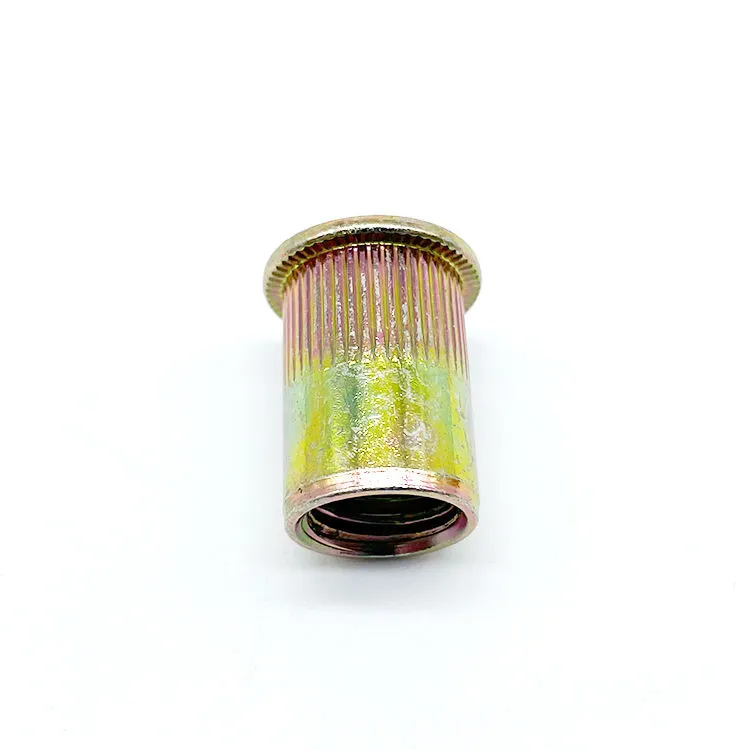

custom stud bolts
Dis . 30, 2024 23:42 Back to list
custom stud bolts
Custom Stud Bolts Understanding Their Importance and Applications
In the realm of construction and engineering, the significance of fasteners cannot be overstated. Among these, stud bolts stand out as pivotal components that play a crucial role in ensuring structural integrity and functionality. Custom stud bolts, in particular, offer tailored solutions to meet the specific demands of various applications, ranging from industrial projects to intricate machinery assembly. This article delves into the importance of custom stud bolts, their applications, and the factors to consider when selecting them.
What are Stud Bolts?
Stud bolts are a type of fastener characterized by their threaded design, which consists of a cylindrical rod with threads on both ends. They are typically used in conjunction with nuts to securely join two or more components. Unlike standard bolts, stud bolts do not have a head; instead, their ends are fully threaded, allowing for greater flexibility in installation and fastening. This design makes them ideal for applications requiring high strength and reliability.
The Advantages of Custom Stud Bolts
1. Tailored Specifications One of the most significant advantages of custom stud bolts is the ability to tailor them to specific engineering requirements. Industries often face unique challenges that standard fasteners cannot adequately address. Customization can include variations in length, diameter, thread pitch, and material composition, ensuring that the stud bolts meet precise load requirements and environmental conditions.
2. Material Versatility Custom stud bolts can be manufactured from a wide range of materials, including stainless steel, carbon steel, and various alloys. This versatility allows engineers to select materials that offer the best performance for their particular applications, considering factors such as corrosion resistance, strength, and temperature tolerance.
3. Enhanced Performance Custom stud bolts can be designed to enhance performance in demanding environments. For instance, in high-pressure or high-temperature applications, specially engineered bolts can withstand extreme conditions, minimizing the risk of failure and ensuring safety.
4. Cost Efficiency While the initial investment in custom stud bolts may be higher than standard options, they can lead to significant cost savings in the long run. Customization often results in improved performance and longevity, reducing the frequency of replacements and maintenance.
Applications of Custom Stud Bolts
Custom stud bolts find applications in a myriad of industries, including but not limited to
- Oil and Gas In the oil and gas sector, custom fasteners are vital for pipelines, pressure vessels, and various structural components. The harsh environments these systems operate within necessitate robust, reliable fasteners that can endure extreme conditions.
custom stud bolts

- Manufacturing Custom stud bolts are commonly used in the manufacturing of machinery and equipment. Their ability to withstand vibrations and high loads makes them ideal for automotive, aerospace, and industrial machinery applications.
- Construction In construction, stud bolts are used for connecting structural elements such as beams and columns, ensuring stability and safety in buildings and infrastructure projects.
- Marine Applications The marine industry often requires fasteners that can resist corrosion due to saltwater exposure. Custom stud bolts made from corrosion-resistant materials are essential for securing various components in ships and offshore structures.
Factors to Consider When Selecting Custom Stud Bolts
When choosing custom stud bolts for a specific application, several factors should be considered
1. Load Requirements Understanding the load requirements is crucial. The size and material of the stud bolts must be compatible with the anticipated loads to ensure safety and performance.
2. Environmental Conditions Consideration of environmental factors, such as temperature fluctuations, exposure to chemicals, and moisture levels, can influence material selection and design.
3. Installation Practices The ease of installation and compatibility with existing systems should be assessed. Custom stud bolts should be designed to facilitate efficient assembly and disassembly.
4. Standards and Regulations Adhering to industry standards and regulations is essential. Custom fasteners should meet the appropriate certifications to ensure reliability and safety.
Conclusion
Custom stud bolts are essential components in various industries, providing tailored solutions that enhance performance, safety, and efficiency. By understanding their benefits and applications, engineers and project managers can make informed decisions when selecting fasteners for their unique needs. Ultimately, the ability to customize stud bolts can lead to improved project outcomes and long-term success in both industrial and construction applications. Investing in quality custom fasteners is a step towards building a robust and reliable infrastructure that can withstand the test of time.
Latest news
-
Hot Dip Galvanized Bolts - Hebei Longze | High Strength, Corrosion Resistance
NewsAug.01,2025
-
High-Strength Hot Dip Galvanized Bolts - LongZe | Corrosion Resistance, Custom Sizes
NewsAug.01,2025
-
Best Self Tapping Screws for Drywall - Fast & Secure Installation
NewsJul.31,2025
-
High-Strength Hot Dip Galvanized Bolts-Hebei Longze|Corrosion Resistance&Customization
NewsJul.31,2025
-
Hot Dip Galvanized Bolts-Hebei Longze Metal Products|Corrosion Resistance&High Strength
NewsJul.31,2025
-
Hot Dip Galvanized Bolts-About LongZe|High Strength, Corrosion Resistance
NewsJul.30,2025

